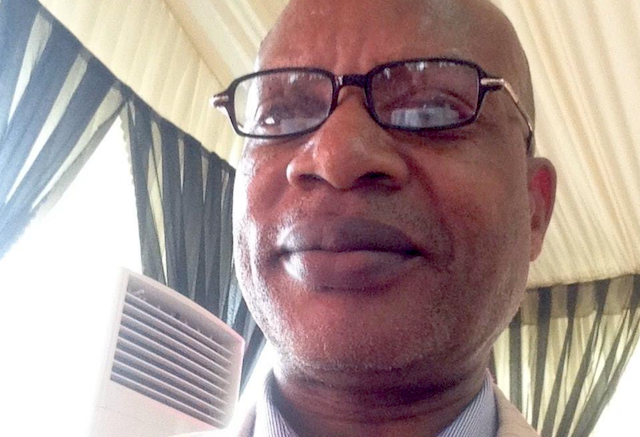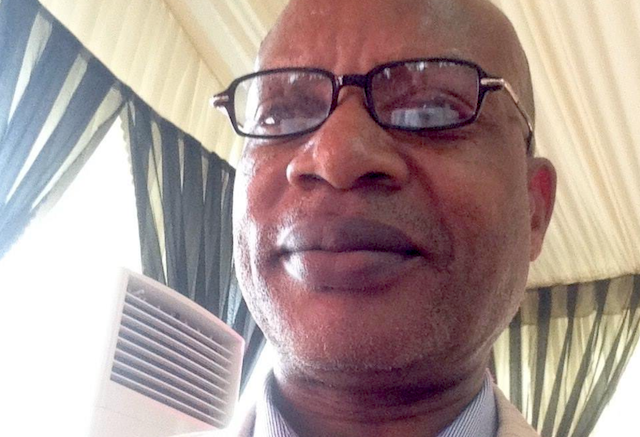This is certainly not a good political season for Nigeria’s opposition parties, as they face an existential threat from continuing depletion of their major and minor platforms due to massive defections of members to the ruling All Progressives Congress (APC).
Coming at a time they’ve vowed to “capture power” from the APC, and throw President Bola Tinubu out of the Aso Rock Presidential Villa seat of government in Abuja, Nigeria’s capital city; the same politicians blame their dwindling fortunes on the President for stifling the opposition in order to create a one-party State in the country.
But Tinubu dismissed the charge on Thursday, June 12, 2025, during his first “State of the Nation Address” at a joint session of the National Assembly in Abuja, to mark the 2025 Democracy Day, stressing the importance of opposition in a democracy, even as he admitted he has no intention of helping rival parties to stay united. His denial of a one-party state was lucid and detailed, The Nation reports.
The President said: “At this point, I plead for your indulgence so that I may put a terrible rumour to bed. To those who ring the alarm that the APC is intent on a one-party state, I offer you a most personal promise. While your alarm may be as a result of your panic, it rings in error.
“At no time in the past, nor any instance in the present, and at no future juncture shall I view the notion of a one-party state as good for Nigeria. I have never attempted to alter any political party registration with INEC.
“Look at my political history. In 2003, when the then-governing party (Peoples Democratic Party (PDP) tried to sweep the nation clean of political opposition through plot and manipulation, I was the last of the progressive governors standing in my region (South-West).
“A greater power did not want Nigeria to become a one-party state back then. Nigeria will not become such a state now. The failed effort to create a one-party state placed progressive political forces on a trajectory to form the APC. It put me on the trajectory which has brought me before you today.”
Yet, President Tinubu welcomes defectors from opposition parties into the APC, stating that the ruling party will keep its doors open to all willing to join, declaring, “It is my wish for the opposition to be in disarray. I cannot help them put their house in order.”
Tinubu said: “We would be guilty of political malpractice if we closed the door on those from other parties who now seek to join the APC. I sincerely welcome our party’s newest members from Delta and Akwa Ibom states, led by Governor Sheriff Oborevwori and Pastor Umo Eno and other members of this National Assembly.
“Political parties fearful of members leaving may be better served by examining their internal processes and affairs rather than fearfully conjuring up demons that do not exist.
“For me, I would say try your best to put your house in order. I will not help you do so. It is, indeed, a pleasure to witness you in such disarray.”
Twenty-four hours later, on June 13, President Tinubu again advised opposition politicians to put their house in order ahead of the 2027 General Election, “so that nobody will accuse anybody of trying to stifle the opposition,” as he commissioned another road project completed by the Wike FCT administration.
Senate President Godswill Akpabio, who represented Tinubu, said: “The President wants you (opposition) to come together. If you cannot come together, the President cannot help you to come together.
“This is politics. And you will never come together when you continue to tell lies on a daily basis. Everything, you condemn. Nothing is good in your country. Was Nigeria like this in 1960? Was Abuja like this three years ago?”
Meanwhile, as usual since assumption of office on May 29, 2023, Tinubu visited Lagos State where he observed the Muslim Eid celebrations; and his home in Ikoyi turned into a “Mecca” and a tourist destination high-up Nigerians, friends and foes alike, visiting to “spend quality time” with him, and pose beside him for photo-ops.
There’re speculations, though, that the visits by some opposition politicians and their backers had to do with the current politics of mass defections to the APC. A case in point was the visit by a business tycoon, Dr Adedeji Adeleke, along with his brother and Osun State Governor Ademola Adeleke of the PDP, and son and Afrobeat music star, David Adeleke (alias Davido), who campaigned against Tinubu’s election in 2023.
That visit has raised alarm in the Osun State chapter of the APC, whose leaders have vehemently rejected Governor Adeleke’s alleged overtures to defect to the APC, vowing to sack him from power in next year’s guber poll in the state.
With his return to Abuja from Lagos, Tinubu buzzed the polity on Wednesday, June 11, as he invited former Rivers State Governor and Minister of the Federal Capital Territory (FCT), Abuja, Chief Nyesom Wike, to join the APC. This was during Tinubu’s commissioning of road projects linking several districts in Abuja.
Praising Wike’s performance in office, and saying he “will be welcomed in the APC,” Tinubu declared that, “no amount of political pressure or opposition” would derail his development under the Renewed Hope Agenda.
The President said: “We have somebody in Nyesom Wike. He’s not a member of my party (APC) — not yet. But the day he changes his mind and registers with the progressives, we will welcome him. Because we will join him in singing, ‘As e dey sweet us, e go dey pain dem’” – echoing Wike’s earlier rendition of the popular Tinubu/APC 2023 victory song, targeted at opposition’s loss of the presidential poll.
The previous day, on June 10, President Tinubu, inaugurating the refurbished Abuja International Conference Centre (ICC) – renamed Bola Ahmed Tinubu International Conference Centre (BATICC) – told the minister to “continue with your good work,” and not to listen to the chatter by the “busybodies and the bystanders.”
Tinubu, after a guided tour of the facility, noted that Wike reflected “Nigeria and Nigerians in the work done at the centre. “You reflect us as people of quality, people of character, people of determination, people of great spirit. That’s what we are,” Tinubu said. “And I’m glad you are reflecting that.
“Don’t pay attention to the busybodies and the bystanders, whatever they say, continue with your good work. You are a transformational leader. You have the foresight, the vision and determination to succeed. Thank you very much,” the President said.
That’s incredible! Tinubu literally urging Wike to emulate him – a President, who doesn’t give a damn about the opposition broadsides and dirts thrown at him. Really, it wasn’t as if Wike needed Tinubu’s advice, as he’s boasted he “happily steps on toes” of critics of his style of governance of the FCT, and politicking in general.
Defections to the APC – which were in trickles pre-announcement of the formation of a Coalition of Opposition Politicians aimed at sacking Tinubu and his government via the 2027 General Election – spiked into an exodus when the coalition commenced canvassing for membership. And there’s been no let-up in partisans streaming into the APC!
Between May and June 2025, Delta Governor Oborevwori and Akwa Ibom Governor Eno – along with majority of elective and appointed members from the national to ward levels, the rank and file members and the party structures in both states – dumped the main opposition PDP and joined the APC.
In all 36 States of the Federation, decamping from the opposition parties to the APC is virtually on daily basis, with cross-carpeting in the National Assembly and State Houses of Assembly almost a one-way affair into the APC during plenaries.
It won’t be a surprise to polity watchers if Wike were to change his political camp, and join the APC, as he’s practically – in flesh and blood – an APC member, serving under the party, and vigorously promoting and stridently defending the tough reform policies and programmes of the Tinubu administration.
While still professing to be a member of the PDP, Wike, as he did in 2023, has repeatedly pledged to “support, campaign and elect President Tinubu for a second term in office in 2027,” lauding his “bold, courageous and decisive leadership.”
On Thursday, June 5, at the 2025 distinguished personality lecture held at the Obafemi Awolowo University (OAU), Ile-Ife, Osun State, Wike, in a paper titled, “The Nigeria of Our Dreams,” said Tinubu’s distinguished him from past leaders, who paid lip service to oil subsidy removal. The Cable reports.
“Leaders before him all spoke about the evil of fuel subsidy, but none had the courage to dare the blackmail of removing it,” Wike said, adding that, “Tinubu is fittingly grappling with the inevitable, unintended and sometimes orchestrated consequences of this removal.”
“Today, our states have far more resources to develop, the debts are no longer piling, and the price of petrol is gradually but steadily adjusting downwards in tandem with the forces of demand and supply and the strict implementation of regulatory conditionalities.”
Agreeing with Chinua Achebe’s crtique – “The Trouble with Nigeria” – that the absence of proper leadership remains the country’s undoing, Wike said Tinubu is the kind of leader to take Nigeria out of the woods.
Earlier on Wednesday, June 11, Wike – precursoring Tinubu’s later remarks at the road projects launch in Abuja – claimed that the President’s infrastructural development “has killed the coalition moves by the opposition.”
Mr. President, let me first of all convey the happiness and appreciation of the people of the city. I’m sure that when you came down from the vehicle, you saw how happy people were praising you. That’s to tell you they appreciate and recognise the good works you are doing,” Wike said.
“There are some people, whatever you do, they will never be happy. They were born not to be happy, and so there is nothing you can do about it. But those who appreciate, who are happy, you can see how elated they are.
“I didn’t know that people can be in pain (over developments). And now that I know there are such people that are pained, my duty is to continue to give them high blood pressure,” Wike said, breaking into the Tinubu/APC victory song, ‘As e dey pain dem, e go dey sweet us.’ ‘As e dey sweet us, e go dey pain dem.’ “That’s my job. I’ll be happy every time, moving, laughing. And then they will be there fighting and shouting and killing themselves.”
“So, Mr. President, we want to thank you that we are part of this, what is going on, the revolution that’s going on. Your good work has killed the coalition. I was thinking that truly, there would be a coalition. So, I told my people, ‘make sure that every national television must hook in (up) so they can see what’s happening every day.’
“‘If they turn to ADBN, they’re watching Mr. President. If they turn to TVC, it’s Mr. President. If they go to Channels, Mr. President. If they go to NTA, Mr. President. Even the one I don’t watch, Arise (TV), it’s Mr. President.’ So, they have no choice, and they must watch it and watch it for 17 days. There is nothing they can do. Coalition is bound to fail, and it has failed.”
With the midterm over, will President Tinubu also take off the gloves, and form a political tag-team with Wike, to give the opposition politicians a bloody nose for their scorched-earth campaign against him, his government and the APC? Certainly, the auguries don’t look good for those angling to grab power from him in 2027!
Mr Ezomon, Journalist and Media Consultant, writes from Lagos, Nigeria. Can be reached on X, Threads, Facebook, Instagram and WhatsApp @EhichioyaEzomon. Tel: 08033078357.

